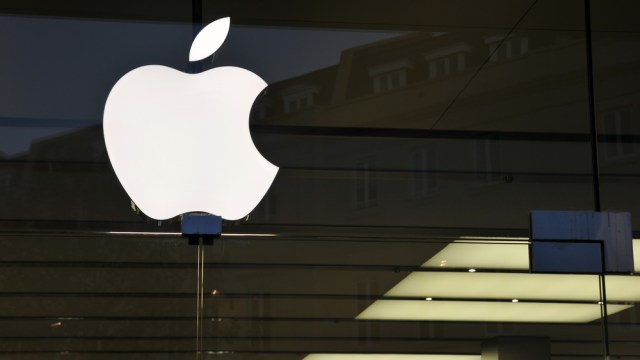Why do your kids speak Korean?

When I was in high school in the USA in the late 1980s, the big Asian language that many of my peers wanted to learn was Japanese. A half-decade later, the number one choice was Mandarin. Today, however, more and more kids are turning towards a language that I personally would never have imagined gaining mass global appeal, Korean.
For the majority of kids who chose to learn Japanese or Chinese in the 80s and 90s (and even the early noughties), their decision was made not because they thought Japan or China were especially cool. They chose to learn these languages because of what was felt to be the growing economic importance of these markets. They thought they were being smart; they thought that learning these languages would give them a real competitive edge in the future.
The motivation to learn Korean today, however, comes from a completely different place. It comes from a shiny, happy place, populated with gorgeous slim girls and boys, dressed in outlandish, colorful costumes who perform complex dance moves in perfect harmony, all the while shaking perfectly coiffed hairstyles, and batting artificially-elongated eyelashes. Today’s teens are learning Korean because of K-Pop, the country’s pop music industry which has, over the past decade, become not just a major economic export but a real global cultural influencer.
K-pop, is, without a doubt, the most significant pop culture phenomenon to come out of Asia over the last decade. Its popularity, thanks in part to the “digital silk road”, as some media pundits like to call the social media networks that have made Korean music videos available to an international audience, is unparalleled. In fact, the last Asian phenomenon that I can think of that has created so many waves across so many cultures is Bruce Lee. But there was only one Bruce and he didn’t have the Internet at his disposal. K-pop, on the hand, seems to have a ready supply of supple, sexy, superhero rockstars waiting for their moment in the limelight.
The stars are gorgeous and young. The videos are incredibly well choreographed, filmed and staged. K-pop’s top producers have, for years, been purposely creating stars and content with not just domestic but global appeal. They’ve openly admitted this. That they’ve been successful–doing something that so many in other countries have attempted and failed–is simply astounding.
The stats alone are staggering. Here are just a few. In October 2009, the Korean girl group 2NE1’s album “To Anyone” ranked second after Eminem’s “Recovery” on the Top Hip Hop Albums chart on iTunes, the largest online music vendor in the United States. The top 3 K-pop blog sites in English alone generate more traffic than all Korean-language music portals within the Korea. That means the rest of the world, especially the English speaking world, is not just paying attention, but obsessively addicted. Ben Richardson, MTV Asia’s Vice President, has said, “Korea as an entertainment exporter is, right now, very significant. Pretty much every market that MTV is in, I would say that Korean content is really driving ratings, program sales. It’s really connecting to audiences.” Even in non-English speaking markets, K-pop has passionate supporters. In May 2011, over 1,000 K-pop fans in Paris staged a flashmob demonstration in front of the Louvre in an attempt to convince Korean music producers to add an extra concert date after the first concert sold out in just 15 minutes.
As someone who, one, follows pop culture trends for a living and, two, appreciates female beauty, I’ve watched my fair share of K-pop videos. And while I was aware of the genre’s growing popularity, I have to admit I hadn’t realized just how far-reaching its influence had extended until a dinner party a few weeks ago. At that dinner, two friends were telling us about a competition their 16 year old twin sons had entered–a global cover contest of a K-pop supergroup. Contestants had to shoot their own videos and submit them via YouTube. “Your sons speak Korean?” I remember asking. “Well, they’ve learnt a lot, because of the music,” their mother replied. And then they showed me and some of the other guests the video. Which I’ve embedded below.
Not only was I impressed with the talent of my friends’ twins, I was also astounded by the sheer number of other entries in this competion. And especially by the number of countries from which the contestants came from. And that’s when I started looking into the rising popularity of Korean language studies.
In Australia, for example, there has been a 90 percent jump in pre-tertiary students studying Korean over the last 2 years; in the country’s most populous state, New South Wales, there was a 100 percent increase. The Korean Education Center there points specifically to Korean music and television dramas as reasons for the increased popularity. As of the end of 2010, the United States had over 1,000 high schools teaching Korean, as this is reportedly growing steadily. One university in Singapore has titled its Korean language studies programme with this headline, “Stay on top of the K-pop wave by learning to speak Korean!” In November 2011, the Korean government stated that it would increase the number of state-run “Sejong Hakdang” Korean language institutes overseas to 90 in 2012 from the 60 it was operating at the time, specifically because interest in Korean was soaring thanks to the growing popularity of Korean pop culture.
Korea’s music producers deserve some serious praise. They may have finally cracked that elusive soft power formula for creating sticky, influential, appealing pop products with global cache. And in so doing, they’re doing more for their country’s cultural influence than a thousand bureaucrats could ever have imagined. Because the more kids around the world that can speak or sing in Korean means the more adults in the future that will be able to interact with the country, its citizens and help make Korea ever increasingly influential in other areas, be they political, economic, or social.
Lastly, in a small bid to help my friends’ talented twins out, YG Entertainment’s global Big Bang Cover Contest is in its final days. In fact, voting ends in 4 days. So, please lend them a hand, and a vote, if you think they are as talented as I think they are.




